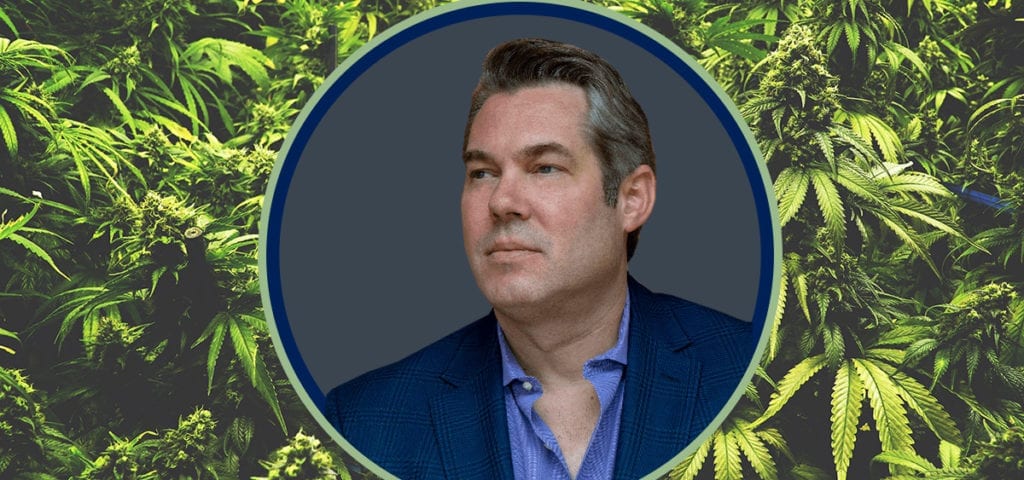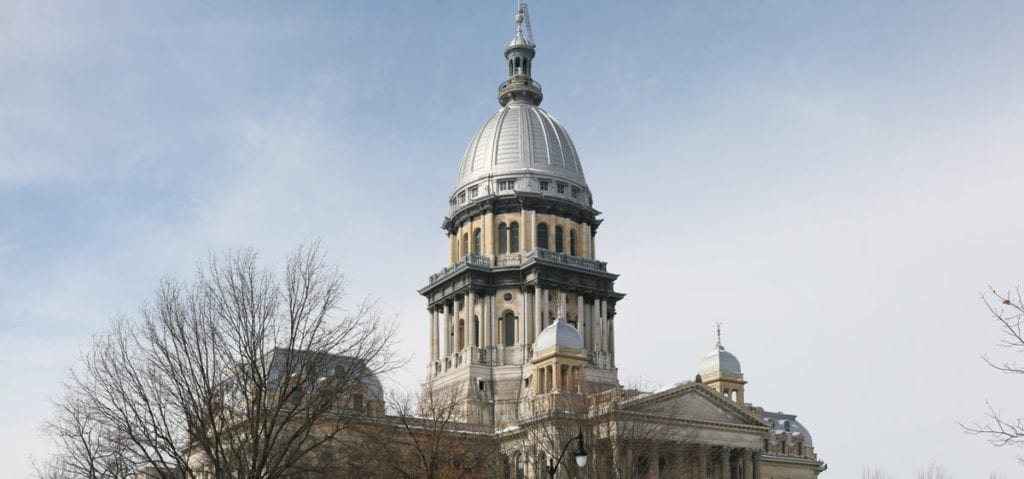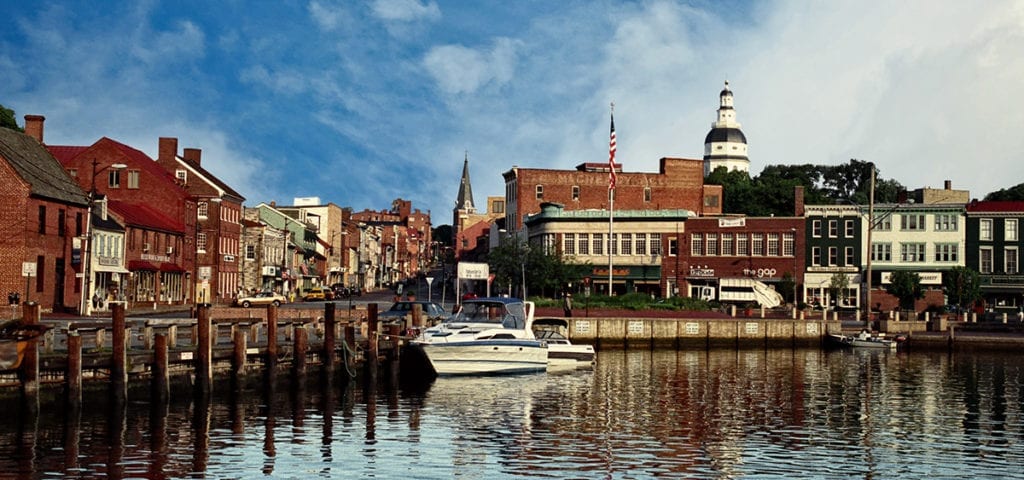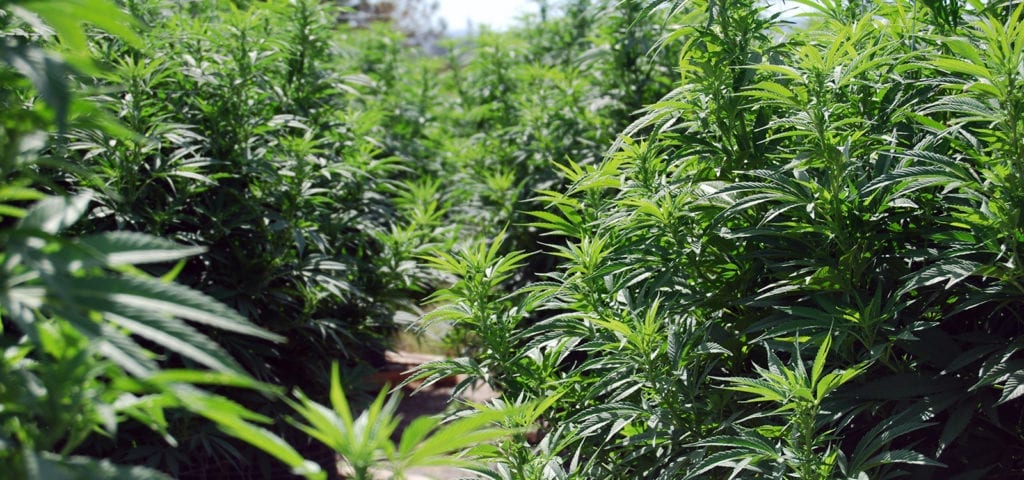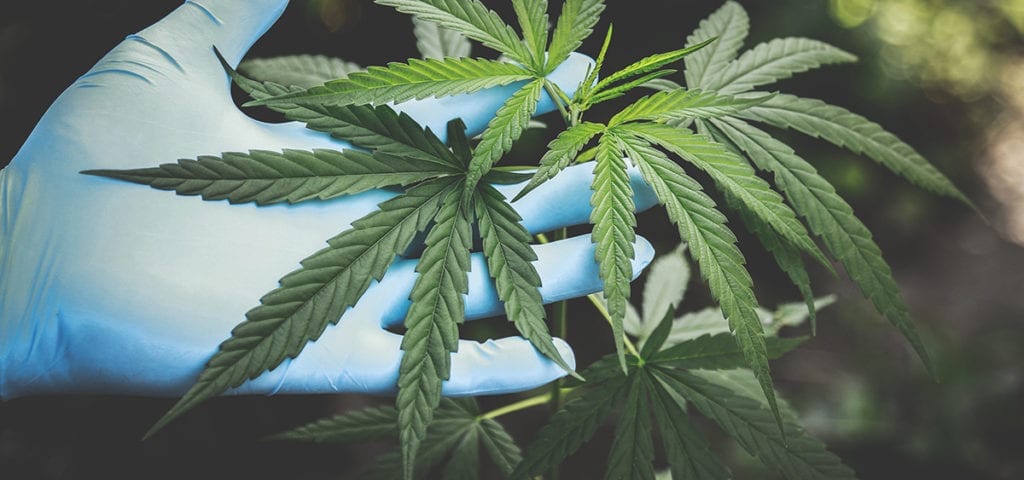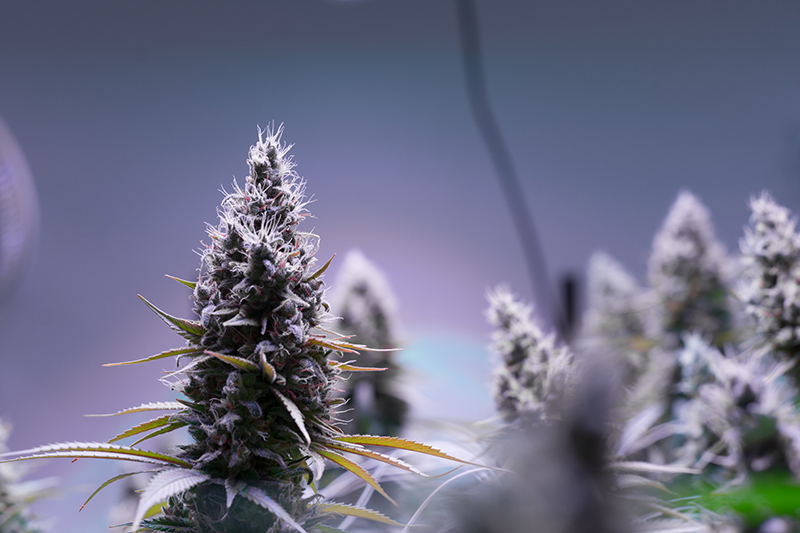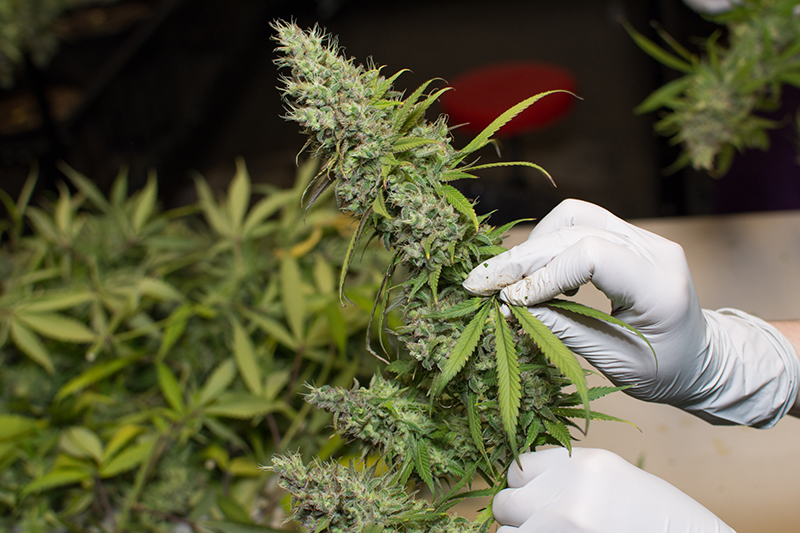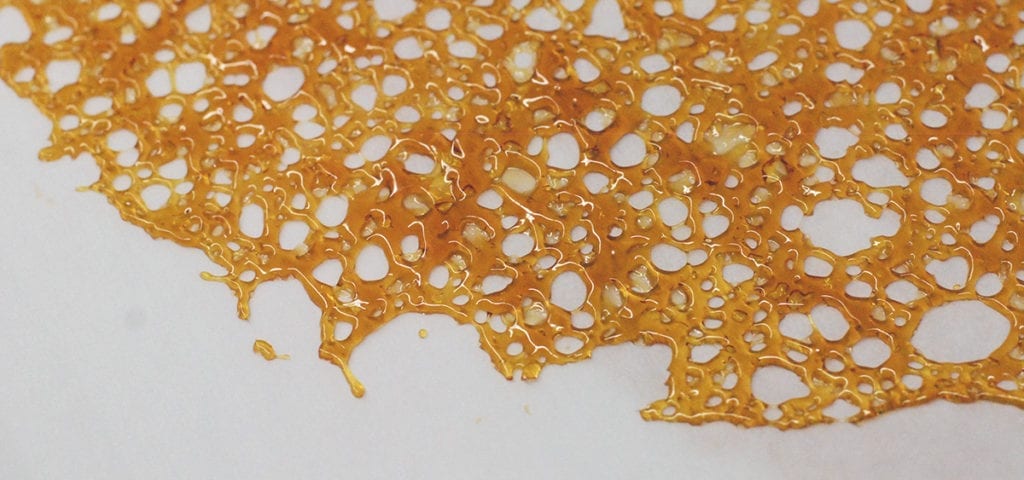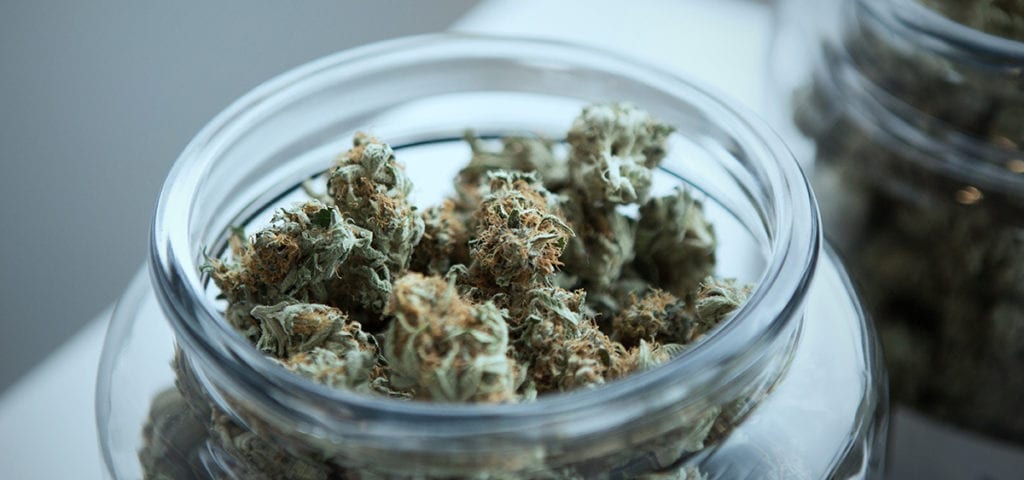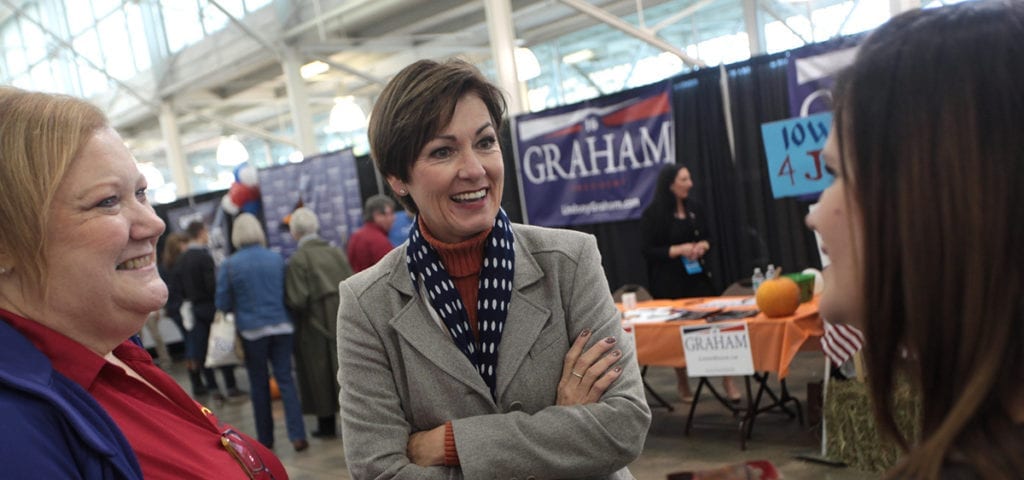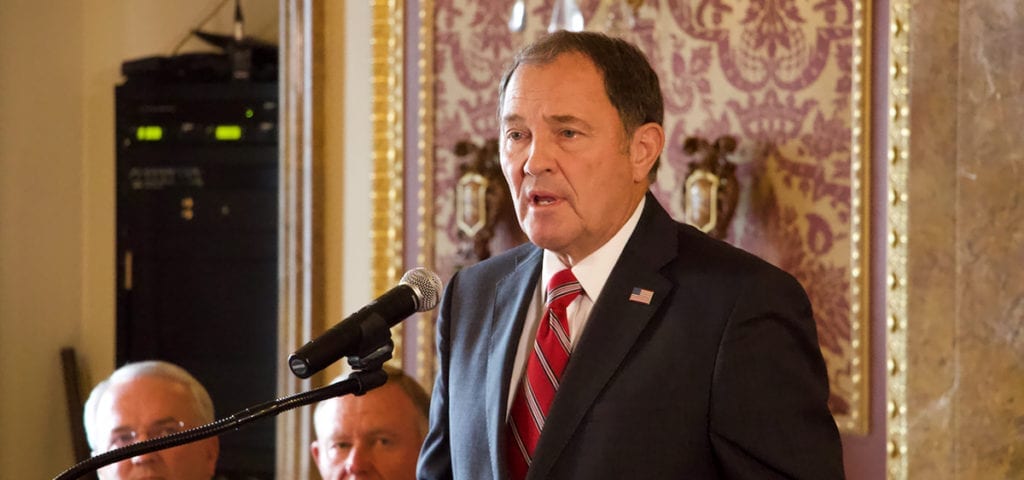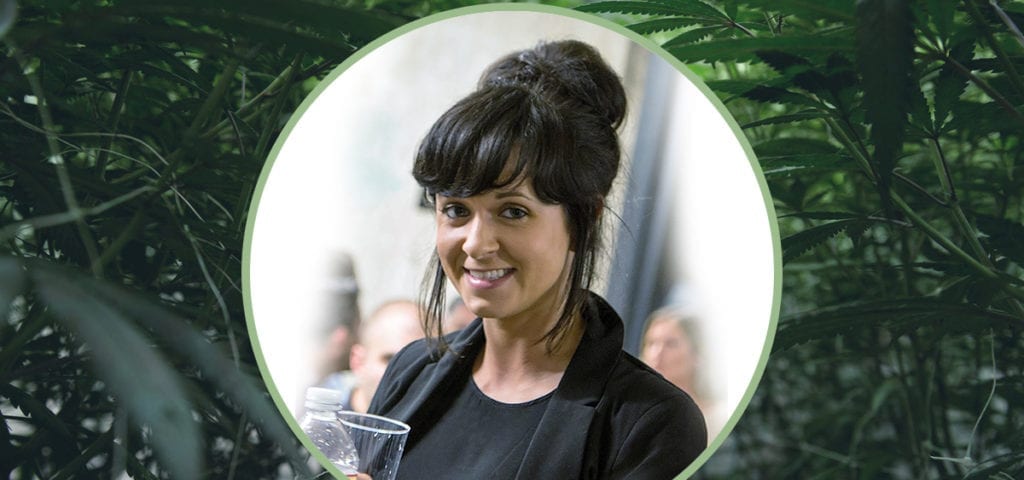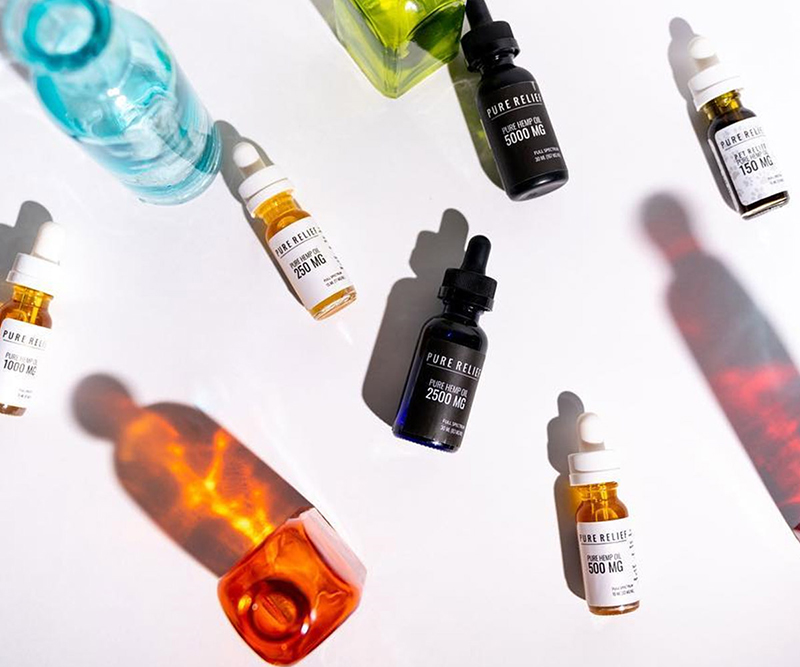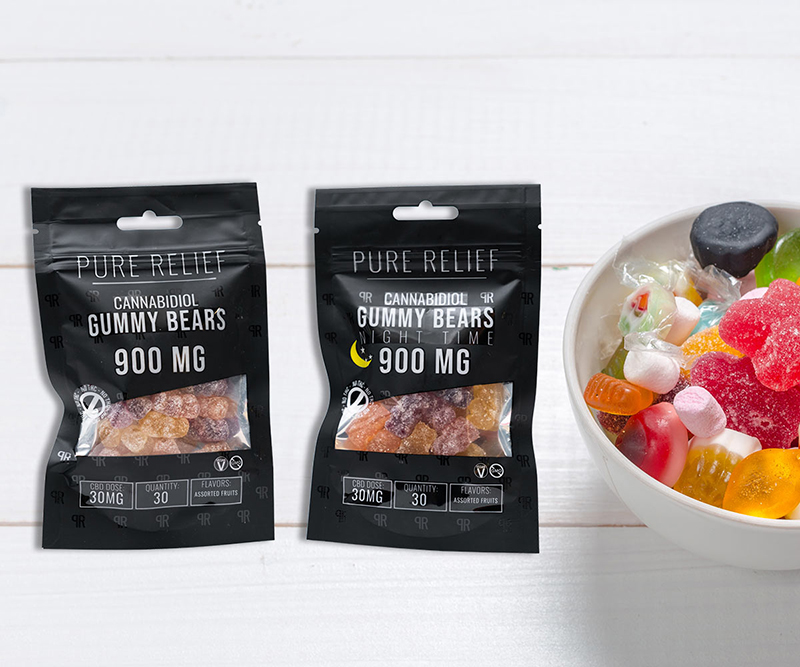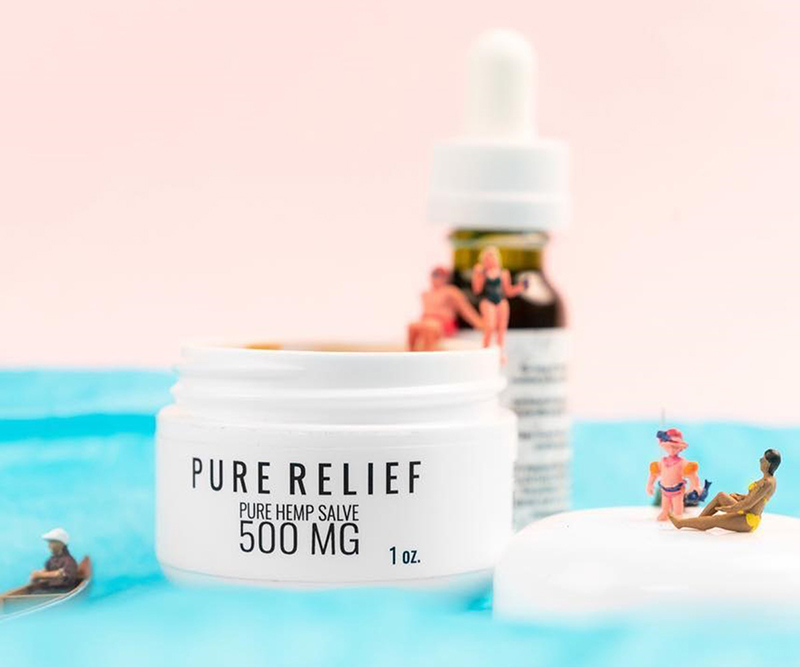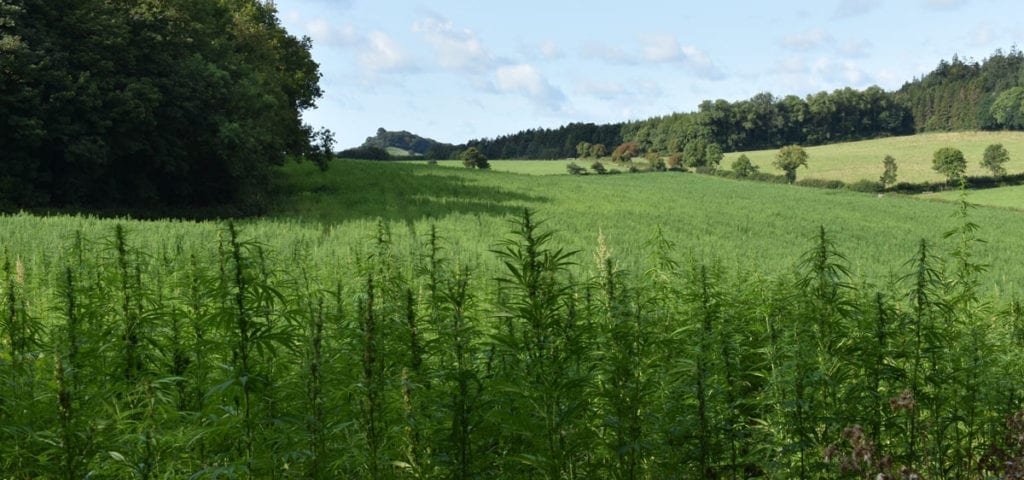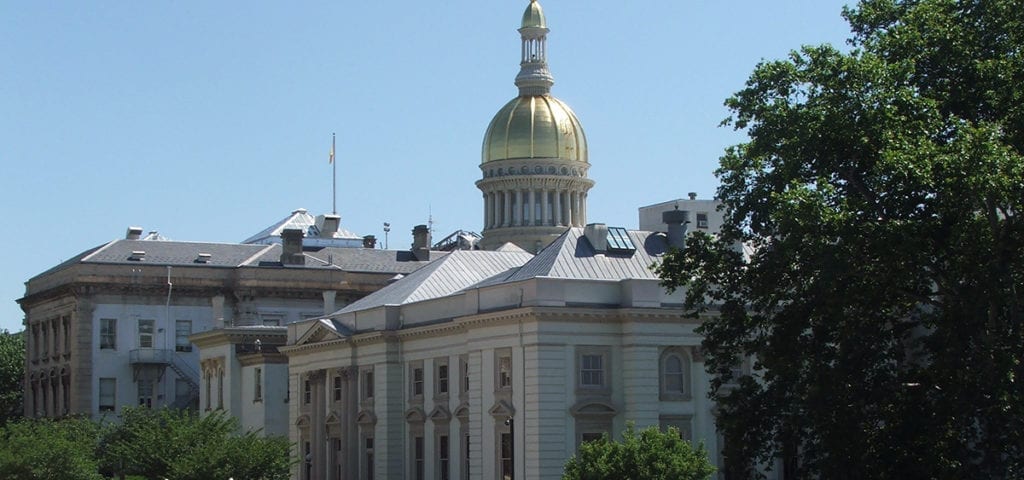Kristen Yoder is CEO of cannabis business advisory firm Soil to the Oil and hosts The CannaBS Detector podcast.
As a veteran of California’s cannabis industry with professional experience in nearly every facet of the business, Kristen joined our own podcast host TG Branfalt for a chat about the state of cannabis as it moves out of the gray and into the heavily restricted legal marketplace. In this interview, we hear Kristen’s 14-year story of exploring the industry — from starting as a dispensary worker, advancing into cultivation, then edibles manufacturing, then as a project manager, and eventually becoming an independent strategic business advisor — and she shares important truths about the industry that may be hard to hear for entrepreneurs or investors who are considering a career in cannabis.
Tune in via the player below, or scroll further down for a full transcript of the interview.
Listen to the podcast:
Read the transcript:
Commercial: This episode of the Ganjapreneur podcast is made possible by 420 friendly service providers in the Ganjapreneur business directory. If you need professional help with your business, from accounting to legal services, to consulting, marketing, payment processing or insurance, visit ganjapreneur.com/businesses to find service providers who specialize in helping cannabis entrepreneurs like you. Visit the Ganjapreneur business directory today at ganjapreneur.com/businesses.
TG Branfalt: Hey there, I’m your host, TG Branfalt, and thank you for listening to the Ganjapreneur.com podcast, where we try to bring you actionable information and normalize cannabis through the stories of Ganjapreneurs, activists and industry’s stakeholders. Today I’m joined by Kristen Yoder, Soil to the Oil owner. She has more than 10 years in the cannabis industry, offering strategic advisement services to businesses and entrepreneurs seeking to enter the industry, and she’s the host of the CannaBS Detector podcast, which is a whole lot of fun. Really interesting stuff on that. How are you doing?
Kristen Yoder: I am good. Thank you so much for having me today.
TG Branfalt: I’m really, really stoked. Before we get into what you do and some of the BS that we’re going to talk about today, tell me about yourself. How did you end up in the cannabis space?
Kristen Yoder: Actually, I’ve been in the cannabis industry in Los Angeles since 2005, so I’m going on 14 years out here. I got my first job at a dispensary when I got my doctor’s recommendation, 2005. There was only one dispensary in the city of LA. The first time I went in there, I was just absolutely in heaven. I was like, “Oh my God. There are weeds stores. This is insane.” To clarify, I wasn’t really a medical patient. That’s just how you got weed in California. The dispensary, nobody smoked there, which was insane. I’m like, “Oh my God. You guys need me.” The second time I came in, they hired me and I mean, I was just … I loved it. For five years, it was my job to literally study weed and teach people about it. So I did that.
Then, between the politics in LA and repeating myself 80 times a day for five years, I got very burnt out. I took a couple of years off to learn how to grow cannabis indoor and outdoor. But I realized, when working in a warehouse, that cannabis growing is labor, and I don’t do labor. So I got another job running an edible company, one of the largest in California, for three years. When I started, I was doing supply chain management and then I took over product development, R&D, pretty much immediately. While I was there I had made 11 products, and I helped them start their Washington edible company. I left there when they got raided because there’s no operations to manage when you get shut down. But they opened up again and then they got raided again, and then they opened up again, but that’s another story.
After three years there, I went to work for the analytical testing lab that I did all the testing for the extract while I was at the edible company, and I did product development with them. They knew I was a good project manager, so I started working with cultivators to come up with custom terpene formulated vape cartridges. They also had just came out with a terpene training kit, which I took on as my pet project, and I would teach edible companies and dispensaries, et cetera, about terpenes. I did that for a year, and then I wanted to go out on my own and tried management consulting, and realize I absolutely hate that. I don’t want to spend my time doing SOPs and business plans for people that aren’t even going to use them or listen to you.
I did that for a year. I also did a podcast back then with my ex-business partner called Cannabis Business Minds, which was on cannabisradio.com, et cetera. Then once we split, I decided to be a strategic advisor, meaning I’ll help you figure out what you should do, I’ll put you in the right direction, but I’m not going to do your homework for you. I’m here to make sure that you know what you’re getting into and to put you in the right direction. So I do that, but really my focus and my passion is teaching people about terpenes and doing my podcast. I also have a dash radio show called Soil to the Oil Story Time, where I have people in the industry talk about their crazy, scary or funny stories.
I’m like, “Don’t talk about your positive stories because that’s literally every other show.” Because, I mean, I want people to know it’s a shit show in the industry. It’s not even fun once they legalize it. I like to bring people down to reality, and I’m also on the radio in San Diego every Friday. That’s about it.
TG Branfalt: You are a busy human being.
Kristen Yoder: Yeah, I really am. I’m losing my mind a little bit. My aspirations are much larger than my capabilities, but luckily I have a lot of awesome people there supporting me and helping me because they believe in me, which is pretty freaking awesome.
TG Branfalt: Even after you said that you were working at a place that was raided a couple of times, why at that point didn’t you walk away? A lot of people do.
Kristen Yoder: Because I freaking love cannabis. I mean, my dad, it’s so funny, he posted a picture of us 20 years ago when we ran his first marathon, and I was 15, and I was wearing a 420 shirt. It’s been … I mean, half baked, dazed and confused. I was your typical stoner child. I mean, I still am. I own that word. There are functional stoners. Don’t throw the baby out with the bathwater because you want to be all pious about medical cannabis. There are people that just like to smoke weed and hang out with people and listen to music or whatever. Yes. Did-
TG Branfalt: Were your parents-
Kristen Yoder: … I answer your question?
TG Branfalt: Yeah, yeah. Were your parents supportive or not? Maybe not supportive but accepting of your cannabis use, and do you think that that might have led you on the path that you’re on?
Kristen Yoder: My parents are all very Christian, nondenominational Christian. My dad and his wife are missionaries in Cambodia. My mom and her husband are … they have a little church in Las Vegas. No, they weren’t supportive when I was a kid, getting high, but they couldn’t stop me. I feel bad for them because they gave birth to a nightmare. But I got better when I moved out. I mean, they were scared. They were more worried than anything because at the dispensary I was at, that got raided by the DEA, and I was the only one there. Then the edible company got raided several times, but that’s because they pissed off ex-employees and, hey man, you get what you put out. Right? Then, the lab, I wasn’t there when they got raided, but this is California. That’s why California doesn’t have a lot of business people running cannabis businesses, because business people don’t want to take a risk of going to jail. You can’t stop me. I’m in it to win it, and I haven’t gone to jail. So, that’s a plus.
TG Branfalt: You are incredible. You spoke briefly about the advisement service that you’re doing now, and I know on your website there, you have something called the power hour. What does somebody get when they sign up for that power hour?
Kristen Yoder: I created the power hour because everybody reaches out to pick my brain. But you wouldn’t reach out to a lawyer to pick their brain about your divorce because they went to law school and they get paid by the hour. Generally, with a retainer. I didn’t do 14 years, running businesses in every sector, to have my brain picked. I do that. Whatever you want to know, I ask people to send me your questions ahead of time. That way, I have answers, I can provide guidance. But really as a strategic advisor, I’d say my main job is expectation management, and that means lowering people’s expectations greatly.
Because if you don’t lower your expectations, you’re going to lose your freaking mind, because whether or not we want the cannabis industry to be professional, it is not there yet. People really need to know that. There is no personal bankruptcy once you start a cannabis business, touching cannabis. These mistakes that you make, live with you like student debt. You really need to understand that if you don’t have the capital to get started, you should be really happy you found me first.
TG Branfalt: You’ve been in the industry for 14 years, you started a dispensary. Now, we’re in legalization in California, not where I am in New York, but how have the industries changed in those 14 years, aside from legalization? You’ve seen a lot. What’s been the biggest changes that you’ve noticed?
Kristen Yoder: The industry in California, the medical cannabis industry, started before the Compassionate Use Act or Prop 215, which was in 1996. But 1996 is when it got established, and until … Let me think, SB 420, I think that came out in 2008 or something. So before then, it was all medical dispensaries, and people, for the most part, were sick. Over time, I’d say around 2010, is when people started dabbing and people started doing open blasting, and the kids started getting attitudes. Then, people just get really jaded and it just … it’s sad, but I mean, that’s what happens with capitalism. But in Los Angeles, it’s always been run by quasi legal people. A majority of them are sociopaths. I’m not even kidding. That’s how you win in the industry, unfortunately, because you really need some balls.
It’s just gotten … It got more, at least in So-Cal more gangster in a way. I mean, there’s tons of gangs that own shops that will shut down and move somewhere else before they actually are shut down all the way, because no one can really afford to enforce it. Extracts were on the rise, big time. I got to tell you, if I was dabbing in high school, I don’t even know where I would be. It’s scary to think of what’s up with the youth, but maybe I’m just an old person.
TG Branfalt: No. I mean, to that point, when I talked to my friends about legalization, I always say the high potency products actually frighten me a little bit because it will give cannabis a bad rap, ultimately, I think. That’s not to say that I don’t love a 100 milligram edible, or dabbing. Do you fear that as well?
Kristen Yoder: I mean, straight up, I have a problem with dabbing. I freaking love dabbing. It tastes so good. I love just taking a fat dab and then laying back and be like, “Hmm, that was so good.” My problem is, is I wake up, I dab, I get on a call, I dab. I’m just dabbing till I run out of things to dab. I literally have my ex-boyfriend take all my bongs and everything out of my apartment because I have no self control. It’s a freaking problem for me, dude. I also turned into a Debbie Downer and I’m already really cynical. It’s not helpful for anybody. But I mean-
TG Branfalt: I’ve noticed that too.
Kristen Yoder: I love it, dude. I love it, but I can’t function on it and I have a problem, and I think people need to realize. I mean, look, even this, I noticed, it takes about three days for me to stop wanting to dab after I stop dabbing, which is crazy. Not that I’m shaking or any sort of withdrawals, but it’s a habit. But after I quit dabbing, I feel so much better. Like so much better. I don’t know, dude. As a grownup, I’m 34, I don’t recommend it for kids, especially these diamonds. Dude, I freaking hate diamonds so much. It’s not natural at all.
TG Branfalt: Tell me a bit about the impetus behind starting the podcast. You say you don’t want people to pick your brain, but you have this podcast where you put everything out there. You’re very honest. I mean, very open-
Kristen Yoder: To a fault.
TG Branfalt: I wouldn’t say to a fault, but it’s incredible to me as somebody who appreciates that sort of thing. When did you decide that you were going to start the CannaBS Detector?
Kristen Yoder: My ex-business partner was literally the most optimistic, positive, energetic person I have ever met in my life, and I am the total opposite, which messed with my head because I’m like, “Wow, am I just the worst, or is she insane?” In the end, I think it was a mix of both. She’s amazing. I’m not talking shit, it’s just in comparison to me. It messed me up. Once I left, then I found comfort going back to being my cynical self, which is when I came up with the title Bullshit Detector, because all I’ve dealt with is bullshit. Literally, my entire career as a young woman in the most shady industry or the shadiest market in the industry, it’s just been nonstop bullshit.
Now, literally all I see is bullshit, so I’m actually really good at that. I created the podcast because I don’t want people to get fucked over. That’s it. I’ve been fucked over, everyone I know has, and if I can just save one person from getting into the industry with an idealistic expectation, then I’ve done my job. That’s the other thing, I made the podcast too, but people don’t want to listen. They just want to pick your brain because they’re lazy. I’m like, “Look dude, I put it up there so you can go check that, and when you’re ready to pay me, call me.”
TG Branfalt: During an episode, you say legalization is just another form of prohibition, and this is something that I firmly have believed in. I’m a libertarian leaning sort of guy. You say something along the lines of … Actually, I have it written down, but I’m not going to be able to find it. With more laws, there’s more laws to break.
Kristen Yoder: Exactly.
TG Branfalt: I’m in New York, Cuomo just took legalization out of the budget. My friends were all like, “Boo hoo,” and I’m like, “that’s great, man. The black market’s treated me fine for 16 years.” I think I know what you mean by that. A lot of people aren’t going to agree with the statement, legalization is just another form of prohibition. What do you mean by that?
Kristen Yoder: I mean, the key word is legal, and the laws are so restrictive, and the compliance is so difficult to follow, and then the regulations are changing all the time, that it kills small businesses. It makes it nearly impossible to make it through the first years of legalization, or legalization in general. Because it’s just too expensive for most people. When you have laws, you have an illegal market. I mean, literally, legalization turns a medical industry into a capitalistic industry, and anyone who can’t be a licensed whatever, they are now criminals straight up. I loved Prop 215 because it was gray, and if you’ve got a good lawyer, you could get out of things. But, I had someone telling me because he has been arrested for growing, he had to go to Federal Court and there is no medical cannabis defense in Federal Court.
He’s strongly for legalization, but I just disagree because legalization doesn’t mean you can have home grows. I think that’s what a lot of people think. Legalization has different flavors based on the state, and in California we aren’t the fifth largest economy in the world because we care about people or anything like that. We’re literally run by special interest. Prop 64, our legalization, just fucked everyone, literally. I mean, two thirds of our state hasn’t even adopted legalization. How does that work? I tell people, “You want to know what national legalization looks like? Look at California,” because all these states are going to be like, “Oh, states rights. We don’t want to do it.” That’s the way it works.
Why would … I mean, considering that special interests are the ones really behind legalization, besides the drug policy alliance, which I really question their motivations. But anyways, it just isn’t for the people in the most part. I mean, plus the taxes and it’s just really depressing watching people in the industry get basically screwed out of the industry they went to jail for, by wealthy capitalist that do not care about anyone in the industry.
TG Branfalt: What would you prefer to legalization?
Kristen Yoder: I mean, decriminalization would be awesome if decriminalization meant that it was not treated like a crime. The problem is decriminalization does not give you a regulated market, which means sales and distribution and everything like that is still illegal or quasi illegal, which people will still get arrested. But people are going to get arrested either way. It depends on who you’re asking. If you’re talking to someone who’s got a felony on their record and they went to jail for a home grow, they’re going to want legalization because it’s going to protect them. They think, but the key is to read the legalization measures before you vote for it.
TG Branfalt: Did you vote for the law? Can I ask you that?
Kristen Yoder: Oh God. No, dude. Hell no. I mean, I’ve read that shit, and you know what? I was going to debate it until they tried to put me on a panel with a crazy lawyer and I was up against a drug war victim and CBD nuns. I’m like, “Whoa, dude. You’re setting me up. I’m not supporting the police on this. This is just a bad deal,” and now everyone is crying, and I’m like, “you’re the one who fucking voted for it. No pity. I’m sorry, but it’s your fault.” Now it’s just too late. What are we going to do? We can’t turn back. It’s very depressing.
TG Branfalt: You mentioned that you were invited to a conference. You’ve spoken about … you’ve spoken at several conferences and some of the talks that you gave were about women in the cannabis industry, and I just want to talk to you a bit about that. Do you think that women are underrepresented in this space?
Kristen Yoder: Oh, my God. Yeah. The fact that people think women are breaking a grass ceiling because of a Forbes article in 2017, does not by any means mean that A, it’s true, or B, that we’re winning. They actually compared the fact that, in the conventional industries or in general business, women are 21% of the industry. But in the cannabis industry in 2017, women are 27%. Are we supposed to be glad that we’re only a little less marginalized? I mean, come on. That was 2017.
Women have been leaving the industry because it’s a boys’ club, and especially with all these Wall Street and investor wealthy people coming in, treating women like sexual objects, not investing in their companies, women getting pushed out of their companies by their board of advisors. I mean, in Canada, I believe 92% of all cannabis businesses are owned by men. I’m constantly out there trying to dispel these myths that make men feel better because it’s not true.
TG Branfalt: Is there any way to bridge this gap? I mean, there’s a minority problem in this space. There’s obviously a women … not a women problem, but in terms of equity, is there anything that can be done? I mean, short of more regulations?
Kristen Yoder: Well, more regulations doesn’t really help anybody. You can’t require a … I mean, I don’t know, dude. Okay. There’s social equity in California, and social equity for Oakland, example. There is social equity, which they go by neighborhoods that have been defined as being over-policed, then they go by income requirements. Meaning, if you had a nonviolent drug offense that fucked your life up and your income, where you make 80% less than the median average income of your neighborhood, you qualify to be a social equity applicant. By being a social equity applicant, you will get priority in licensing over existing businesses.
Here’s the problem. This is such an over-regulated industry that … Do you really think that people with no background in running these businesses are going to succeed? I don’t know, man. I mean, we really got to train people. Even business people fail at this. Second of all, guess what’s happening? Rich investors are just picking up social equity applicants. I mean, in a way exploiting them for the licenses, which defeats the purpose. I mean, I think all intentions are good or whatever, but are they actually going to make a difference? I don’t know, dude.
None of these social equity programs have actually worked yet. I think that’s what happens when the government gets involved. They fuck it up. They always do. I mean, it’s a definite problem, it’s something we need to address. But let’s not kid ourselves. Legalization is capitalism, and capitalism does not care about people. Who runs everything? Rich white people. I mean, who’s fucked up the world? White people. I don’t know, dude. Can we fix it? Mm-mm (negative) I tell people, “Don’t come to me for motivation.” You know what I’m saying?
TG Branfalt: No. I mean, it’s a really harrowing truth that I don’t think does get enough attention. To your point, two-thirds of California doesn’t even have … allow legal sales and it’s probably those same areas that were really bad to minorities when enforcement was in full effect. It’s not really helping anybody, to your point.
Kristen Yoder: Well, I think also something to consider is, if you don’t regulate your industry, you are willfully allowing an illicit industry, which will only cost you money and enforcement. Not only that, you’re fucking the state from their tax money, which they need to enforce legalization because if you don’t have enforcement, then what’s the point of getting licensed? Because you’re going to get over-taxed, over-regulated and probably grounded, destroyed. Then, there’ll be some wealthy dude who will buy up the shell of your company for pennies on the dollar because you don’t have any options to get out of it.
This is a freaking problem. I mean, I had this idea that will never happen, but we should charge any city or county, that decides to opt out of regulating their industry, a specific fee based on their population. Minimum $1 million a year, and if you want to fuck around and not regulate the industry and have an illicit industry, then you need to pay for it. Maybe if you pay for it, you might change your mind and actually tax it, regulate it and be a part of the system, not a problem. But until then, we’re fucked. Two thirds of the state, that’s insane. What were they thinking?
TG Branfalt: That’s mostly … Where is that mostly? Is it pocked out or?
Kristen Yoder: Yeah, it really is. I mean, even if they allow cultivation, they don’t allow shops. I mean, the state had to pass the bill to allow delivery all over the state because they left two thirds of the state as a cannabis desert. Here’s the other thing that people don’t realize, legalization destroys medical cannabis because the government would rather just wrap two programs into one and not deal with medical. But the problem is, medical patients, A, need higher dosage products because they’re using it for medical things. But if it’s only a recreational market, they limit edibles at a 100 milligrams. Not only that, then you have all these crazy taxes. A chocolate bar that used to be 180 milligrams that sold for $20, is a 100 milligrams and it sells for $40. When you make legalization and all of these cities decided to opt out, the medical dispensaries are also fucked. Who wins?
TG Branfalt: I didn’t know that the medical dispensaries also weren’t allowed if they’d got rid of rec.
Kristen Yoder: I mean, look, man, if they had regulations in the first place, then they probably regulate the industry, but it’s coming up with their own specific greedy bullshit that makes them not do it in the first place. I mean, dude, literally one city in California was requesting … not requesting, requiring $50 per square foot of cultivation tax to be paid up front. What? That’s insane. I mean, another city, they were telling people that if they wanted to grow at home, they would have to get a permit through the city, which is unconstitutional because it’s our right to grow and they don’t need to know our business. It’s all of these different things where we got fucked. Totally.
TG Branfalt: Have you heard of anyone considering challenging that ban based on constitutional grounds?
Kristen Yoder: I mean, people are really just trying to survive right now, and I think … I mean, the first episode I did for the CannaBS Detector was with this incredible lawyer. I mean, I just quizzed him on every way to sue and be sued in the cannabis industry, and I asked, “Couldn’t we sue the State for fucking up?” People are suing the State for the delivery bill because they’re like, “We don’t want this in our area.” I mean, it’s just special interest in the end.
TG Branfalt: I do want to ask you this question that’s sort of unrelated to what we’ve been talking about. But I’m really interested to get your response. I was interviewing somebody … I was interviewing a company from Maryland which was led by females, and they … medical company, they offer products geared towards women. What they said was that they adopted these monikers for their products based on strain names being seen by some as too masculine, AK-47, green crack, things of that nature. I’m wondering first, what you think about that, whether or not strain names are too masculine. How do you feel personally about products that are marketed toward women with pinks and purples?
Kristen Yoder: I mean, A, I have been in the industry so long that if I actually had to buy cannabis, I think I failed somewhere in my career. With that said, I’m not a consumer like that. If it appeals to women, sweet dude, we’ve been marginalized in every other way, the thing is, it’s not different. But I mean, marketing is marketing. I think with the names, genetics actually matter. People don’t do the genetics, breeders, fino hunters, whatever. They don’t do this so you can change it into some fluff bullshit. You know what I’m saying? Okay. I don’t support green crack, but blue dream or … I mean, even AK-47, that’s very established genetics. If you’re going to change the name, you at least owe people what it actually was in the first place.
There’s a company called Canndescent in California. They’re cool. Love it. I love their approach, but they changed all the names to like Calm, or Relax, or whatever. But it doesn’t work like that for everyone. In my opinion, I mean, A, independence sativa is bullshit because it’s the terpenes that affect it. When you’re calling something Calm, that’s placebo effect right there. You’re actually influencing people to think that that’s what’s going to happen, and if you didn’t, what would they actually feel? Which is the whole point of my terpene class that I teach, is that stop guessing. Don’t … It’s not sativa or indica. What if you just bought cannabis and consumed it with no expectations? It will probably have a different effect than if you bought something called Calm. You know what I’m saying?
TG Branfalt: Yeah. Do you think terpenes are the next … I guess-
Kristen Yoder: Totally. Yeah, no. It is. Dude, I mean, I always ask people in my class, “What do you do when someone hands you a nug?” You smell it. That’s what you do. We follow our noses. I know if it’s sour diesel or not because of the terpene profile. I learned this at the lab I was working at. It took me about a month to come into acceptance that I was spreading bullshit for five years at a dispensary, which is another reason why I’m so passionate about dispelling this to make up for that. But, I mean, even this, I would tell people whatever they wanted to hear to get them to leave, and that’s exactly what they want it to feel. Which then made me wonder, what does cannabis do?
But now we know that it’s the terpene profile, not necessarily the potency. It’s not just THC, it’s THC and other cannabinoids and the terpene profile. Once you figure out what strain you like, look it up online, look up the terpene profile, and then find other strains that have the same dominant terpenes. The other thing is, this is not strains, it’s cultivars or chemovars, but you can only be so anal, really, before you start turning people off.
TG Branfalt: What’s your favorite strain? What’s your favorite terpene profile? [crosstalk 00:32:15]
Kristen Yoder: I love Bubba Kush or Master Kush or Hindu Kush. It’s got this meaty mentholy spicy flavor. But it’s so hard to actually find those strains because people mislabel things, which is so annoying. It’s like, “Dude, if it’s not OG, don’t call it OG just to charge more money because it doesn’t even smell like OG.” Which is a problem. I mean, do we have so many issues to deal with? I mean, dude, you don’t go to a grocery store and buy a green apple and call it a red apple. I mean, rose growers don’t spend all their time coming up with specific rose breeds or species or whatever so that you can just call it a rose. You know what I’m saying? We need to respect the growers. I mean, after all, they get fucked by everybody, yet they are the basis of the industry. I mean they get fucked by everybody because they’re at the bottom of the supply chain. They do the most work and they get the least amount of money.
TG Branfalt: Is there any push to at least change that set up by people in the industry that you’ve spoken to?
Kristen Yoder: Well, I know that there are companies like … What is it? Bio something. Oh, Phylos and other companies that are like, “Look, send us your products so we can map the genome and add it into our systems, so when big businesses and corporations come in and start patenting different things, we can show that this existed before them and they don’t own it.” The thing is, is once that company gets bought up by a big company, then a massive company now has everybody’s information. It’s a catch-22, and really, who’s going to regulate it? There is no such thing.
TG Branfalt: How bad is the corporate problem in California?
Kristen Yoder: It’s huge. I mean, most states don’t allow outside investment into their state when they’re starting because that fucks everyone in the state. California was like, “Hey, dude. Anyone can come in.” Now we have all of these investors making stupid investments, really investing with their penis or something because they’re not thinking about what they’re doing, and they’re fueling a bunch of sociopaths that don’t know how to run businesses, and everyone suffers working for them. They keep getting bigger. I’m not going to say any names, but there’s some really big companies run by super shitty people and it’s because stupid investors keep giving them money. I think this is a big problem. Plus these people don’t get high. They waited. I mean, dude, John Bayner. Okay. He’s like-
TG Branfalt: Yeah, Bayner.
Kristen Yoder: He’s pushing for federal legalization. I questioned his motives. He runs … I mean, he’s-
TG Branfalt: It’s got to be money.
Kristen Yoder: … on the board of Acreage Holdings, which wants to own the industry. I say, “Fuck those guys. Fuck John Bayner. Fuck the ex Canadian prime minister.” None of them were supportive of cannabis when we were going to jail, yet now they’re all about what? Making tons of money off of it? No, I’m not going to support these people exploiting my industry.
TG Branfalt: In lieu of support though, I mean, isn’t somebody like Bayner at least a big enough to maybe get some of these conservatives Republicans who are … if he can help change their mind then maybe less people go to jail and maybe-
Kristen Yoder: Dude, if he changes their mind and national legalization happened, we’re fucking done. We’re done. That’s the last thing protecting small businesses. Look, the cannabis industry is a risk. If you’re not willing to take the risk, you don’t really deserve to be in the industry in the first place. I haven’t gone to jail, so obviously I’m not representing everyone, and that sucks, dude. But federal legalization — dude, Hemp Farm bill that just passed. That doesn’t mean you can grow hemp wherever you want now because states-
TG Branfalt: No.
Kristen Yoder: … can control it. If we do federal legalization, the next step is globalization. Let me give you an example of globalization. There is a company called … I think it’s InstaDose Pharma in Canada. They have spent a ton of money investing in the DRC and Colombia or something, in South America. They grew so much hemp. Supposedly that they had 2 million liters of CBD that’s going to come into the Canadian industry. They propose that that will drop the prices of CBD wholesale by 96%. There’s no way Americans could compete with third world countries. I mean, ask any farmer. Let me tell you, this depresses people, but this is a reality.
There was an article by The Guardian that said that farmers have the highest suicide rate by all industries combined. The thing is, is you don’t hear about it because farmers stage their deaths to look like accidents so their family can get life insurance to bail them out of debt. That’s a fucking problem.
TG Branfalt: Holy shit.
Kristen Yoder: But why don’t you add on the fact that you were growing cannabis for 20 years, and now you’re still … A, it’s still illegal even with federal legalization because you’re not licensed. Then, if they had a global market, even then, everyone’s fucked. I actually know of three … I’ve heard about three people that were in the industry that took their lives last year because of the stupid regulations fucking up their livelihoods. I think government needs to understand what they’re doing, but honestly, I don’t think they care.
TG Branfalt: I mean, I’m there with you. Taxation staffed and-
Kristen Yoder: Like …
TG Branfalt: … the government is the biggest murderer in the world.
Kristen Yoder: No taxation without representation. You know what I’m saying?
TG Branfalt: Nobody believes that anymore.
Kristen Yoder: Whoops! People are done. That’s the problem. That’s why we don’t want John Bayner talking. Dude, all he is, is talking Republicans into exploiting our industry, not protecting us. No, I don’t want that. I don’t want these guys in the industry. They don’t fucking deserve it.
TG Branfalt: I could sit here and I could talk t youo for another hour and a half, but I cannot.
Kristen Yoder: I know. I could go off. I go off every day these … If you can’t tell, this shit makes me heated, which is the whole point-
TG Branfalt: No, you’re passionate. You’re passionate, and you rightfully should be. I mean, you’ve been part of DEA raid several times. You’ve been in the industry before there was this industry, and I mean, I admire your forthrightness and it’s a breath of fresh air. I think, in an industry that people want so badly to call it a win, when the reality is it’s just fucking people, fucking farmers, and it’s-
Kristen Yoder: Fucking themselves, man.
TG Branfalt: … ultimately, more people are going to go … ultimately people are still going to go to fucking jail over this.
Kristen Yoder: Yes, exactly. Come on, guys, let’s pay attention. This is the other thing. I’m putting together a tour for my terpene class and my podcasts, and I’m calling it the Common Scents tour, but a scents spelled like S-C-E-N-T-S, and the whole point is I want to teach you about terpenes but also critical thinking, and maybe get you to start sniffing out the bullshit instead of believing it. Because unless we start questioning the motives behind the things that are coming up, we are going to fuck ourselves. There’s really no excuse. If you hear me talk, then I’m holding you personally responsible for fucking things up if you vote for stupid things. Don’t even tell me if you voted for it. You know what I’m saying?
TG Branfalt: I’ve never had an opportunity, I’ve never lived in a legal state, but like I said, When Cuomo was pitching it in the budget, people around me are excited and I’m just like, “Guys, it’s not going to be what you think it is.”
Kristen Yoder: None of these governments pass this to help people. Okay, they pass it for money, period.
TG Branfalt: When I was in Vermont, they legalized … basically decriminalize it. There was no shops or anything in the regulations and a little gray market occurred. But it was basically just the same people just doing the same thing, just no longer afraid that when they get pulled over with an ounce or two that they’re actually going to go to jail for it, or even have it taken from them.
Kristen Yoder: That’s the way to go.
TG Branfalt: They’re talking about regulations, probably as we speak.
Kristen Yoder: I mean, they probably are because they want money. But, look, if you are a part of the regulations, if you don’t vote for things that are going to fuck you up, that’s the key. You got to keep fighting. If you want to do something better, then you need to pull together and come up with a better solution. Because just being against it … I mean, it’s not going to work if we just buy everything, maybe we could influence some things. It might not be as bad if people were really pushing what would help people. But if we leave it to lobbyists and government officials, no one’s going to win but them.
TG Branfalt: Well, that’s how it’s been, at least, our entire lifetimes. I feel that.
Kristen Yoder: It’s called capitalism, straight up.
TG Branfalt: It’s crony capitalism. It’s a goddamn shame.
Kristen Yoder: Look at our president. Need we say more?
TG Branfalt: You’re going on this tour, terpenes Common Scents, just going in California or?
Kristen Yoder: No. No. I’m starting off in Jamaica next month, and I’m going to be teaching doctors about terpenes. Then California, I’m going to go up the coast in May. June, I’m hoping to go across Canada. July, I don’t know. Wherever people pay me to go. I’m not coming to the East Coast until autumn because I’m not trying to sweat. You know what I’m saying?
TG Branfalt: It’s 40 degrees here right now. It’s perfect.
Kristen Yoder: Yeah, but not during the summer. It’s horrible. Plus I always wanted to see the leaves change.
TG Branfalt: Yeah. It’s a good time. I’ll definitely look for you if you do make it under the East Coast. Where can people find the Bullshit Detector and more about you?
Kristen Yoder: I highly recommend anyone in the cannabis industry to get on LinkedIn. It has the best industry. This is where the future is. It’s the smart people. People don’t put up with Facebook emotional bullshit. I mean, that’s what I love about it. People actually really hold their feeds seriously. So LinkedIn, I am linkedin.com/in/thatskristenyoder. If you connect with me, I’ll keep you informed and I have over 22,000 connections that are, for the most part, awesome people. You can find me on Instagram at Soil to the Oil, and on my Instagram page there are links to my other Instagrams for both of my shows, and on those bios, there is a link to a document that has every episode on it. Then you can find me. My website is soiltotheoil.com.
TG Branfalt: Thank you so much for coming on the show, taking the time. I know that you’re busy. Like I said, breath of fresh air. I’m excited to keep listening to your podcast, and hopefully I get to catch this Common Scents tour if you make it out east or into parts of Canada, because I’m close to the border, just in case shit goes south.
Kristen Yoder: I know, dude. I’m planning on marrying a Canadian for an exit. Because … Don’t marry for love, marry for benefits. The other thing that I didn’t mention was my podcast, the part of my tour with my podcast is to go around and get the voices of everyone that’s getting fucked over by their regulations. I mean, dude, Canada, wow. They’ve really messed. Everywhere has messed up and there are victims everywhere, and it is my goal to give them a voice because I feel like they’ve really been marginalized. Stay tuned, everyone.
TG Branfalt: It’s incredible. You’re incredible, man.
Kristen Yoder: Thank you.
TG Branfalt: Thank you so much again for coming on the show.
Kristen Yoder: Thanks for having me.
TG Branfalt: Dog, what are you doing? My dog just showed up. You said enough. You can find more episodes of the Ganjapreneur.com podcast in the podcast section of ganjapreneur.com, and in the Apple iTunes Store. On the Ganjapreneur.com website, you’ll find the latest cannabis news and cannabis jobs, updated daily along with transcripts of this podcast. You can also download the Ganjapreneur.com app in iTunes and Google Play. This episode was engineered by Trim Media House. I’ve been your host, TG Branfalt.

